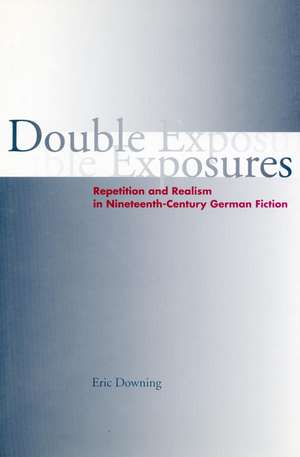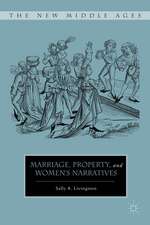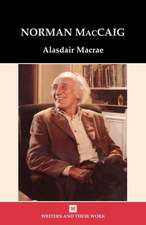Double Exposures: Repetition and Realism in Nineteenth-Century German Fiction
Autor Eric Downingen Limba Engleză Hardback – 30 iun 2000
Double Exposures aims not only to focus attention on competing meanings of realism and mimesis in nineteenth-century German narrative fiction, but also to supply a quite different account of how realism's typically submerged structures allow readers to explore some of the basic phenomena and contradictions of their extra-literary, social existence. It challenges the currently dominant critical perspective on German poetic realism (and on literary realism in general), which considers this seemingly transparent mode of representation a deeply ideological and self-deceiving form of cultural discourse that reiterates, and so reinforces, powerful social constraints already at work in the extra-literary sphere.
By rethinking the landmark theories of Jacobson and Barthes, Horkheimer and Adorno, and Freud and Lacan—especially their attention to repetition—to point out that any instance of formal repetition produces effects that cannot be contained, the author articulates how the supposedly marginal moments of faltering to both its own and its other cultural discourses are, in fact, intrinsic effects of poetic realism's double, conflictual nature.
Through a series of close readings of several realist novellas by Adalbert Stifter, Gottfried Keller, Theodor Storm, C. F. Meyer, and Wilhelm Raabe, the book explores a number of realism's array of "redundant" motifs having to do with nature, gender, family, class, and aesthetics. It demonstrates that the realist project was always about more than simply reinforcing bourgeois ideology, and always fostered a form of self-awareness and reflection inseparable from what we value as literature.
By rethinking the landmark theories of Jacobson and Barthes, Horkheimer and Adorno, and Freud and Lacan—especially their attention to repetition—to point out that any instance of formal repetition produces effects that cannot be contained, the author articulates how the supposedly marginal moments of faltering to both its own and its other cultural discourses are, in fact, intrinsic effects of poetic realism's double, conflictual nature.
Through a series of close readings of several realist novellas by Adalbert Stifter, Gottfried Keller, Theodor Storm, C. F. Meyer, and Wilhelm Raabe, the book explores a number of realism's array of "redundant" motifs having to do with nature, gender, family, class, and aesthetics. It demonstrates that the realist project was always about more than simply reinforcing bourgeois ideology, and always fostered a form of self-awareness and reflection inseparable from what we value as literature.
Preț: 564.99 lei
Preț vechi: 697.53 lei
-19% Nou
Puncte Express: 847
Preț estimativ în valută:
108.11€ • 113.11$ • 89.81£
108.11€ • 113.11$ • 89.81£
Carte tipărită la comandă
Livrare economică 03-17 aprilie
Preluare comenzi: 021 569.72.76
Specificații
ISBN-13: 9780804736787
ISBN-10: 0804736782
Pagini: 352
Dimensiuni: 152 x 229 x 30 mm
Greutate: 0.62 kg
Ediția:1
Editura: Stanford University Press
Colecția Stanford University Press
ISBN-10: 0804736782
Pagini: 352
Dimensiuni: 152 x 229 x 30 mm
Greutate: 0.62 kg
Ediția:1
Editura: Stanford University Press
Colecția Stanford University Press
Recenzii
"Downing's highly original, thorough, and rewarding book is certain to emerge as an indispensable critical reference-point for scholars and students in the areas of narrative theory, problems of realism, and 19th-century German prose. . . . A nearly ideal combination of intellectual scope, erudition, and originality." —Thomas Pfau, Duke University
"To write an engaging and entertaining study of German or poetic realism that offers insightful and differentiated readings of the novellas of Stifter, Storm, Keller, C.F. Meyer, and Raabe through the lenses—focused on repetition—of narratology, Critical Theory, and psychoanalysis and, to a leser extent gender studies, is without a doubt a daunting endeavor. This study, with its keen analysis of the doubling within German realist texts, is equal to the task. . . . While this book is written to engage and challenge scholars of realism, the clarity of Downing's prose makes the textual twists and turns, and thus the study as a whole, equally accessible to non-specialists."—German Studies Review
"Downing's readings are persuasive and well documented; the research is usually meticulous and his erudition considerable. . . . There is no question about the high quality of Downing's contributions to our understanding of the complicated and contradictory strategies of German literary realism in the nineteenth century."—Monatshefte
Notă biografică
Eric Downing is Associate Professor of Comparative Literature at the University of North Carolina, Chapel Hill. He is the author of Artificial I's: The Self as Artwork in Ovid, Kierkegaard, and Thomas Mann.
Textul de pe ultima copertă
“Downing’s highly original, thorough, and rewarding book is certain to emerge as an indispensable critical reference-point for scholars and students in the areas of narrative theory, problems of realism, and 19th-century German prose. . . . A nearly ideal combination of intellectual scope, erudition, and originality.” —Thomas Pfau, Duke University
“To write an engaging and entertaining study of German or poetic realism that offers insightful and differentiated readings of the novellas of Stifter, Storm, Keller, C.F. Meyer, and Raabe through the lenses—focused on repetition—of narratology, Critical Theory, and psychoanalysis and, to a leser extent gender studies, is without a doubt a daunting endeavor. This study, with its keen analysis of the doubling within German realist texts, is equal to the task. . . . While this book is written to engage and challenge scholars of realism, the clarity of Downing’s prose makes the textual twists and turns, and thus the study as a whole, equally accessible to non-specialists.”—German Studies Review
“To write an engaging and entertaining study of German or poetic realism that offers insightful and differentiated readings of the novellas of Stifter, Storm, Keller, C.F. Meyer, and Raabe through the lenses—focused on repetition—of narratology, Critical Theory, and psychoanalysis and, to a leser extent gender studies, is without a doubt a daunting endeavor. This study, with its keen analysis of the doubling within German realist texts, is equal to the task. . . . While this book is written to engage and challenge scholars of realism, the clarity of Downing’s prose makes the textual twists and turns, and thus the study as a whole, equally accessible to non-specialists.”—German Studies Review
Descriere
"Downing's highly original, thorough, and rewarding book is certain to emerge as an indispensable critical reference-point for scholars and students in the area of narrative theory, problems of realism, and 19th-century German prose. . . . A nearly ideal combination of intellectual scope, erudition, and originality." —Thomas Pfau, Duke University















